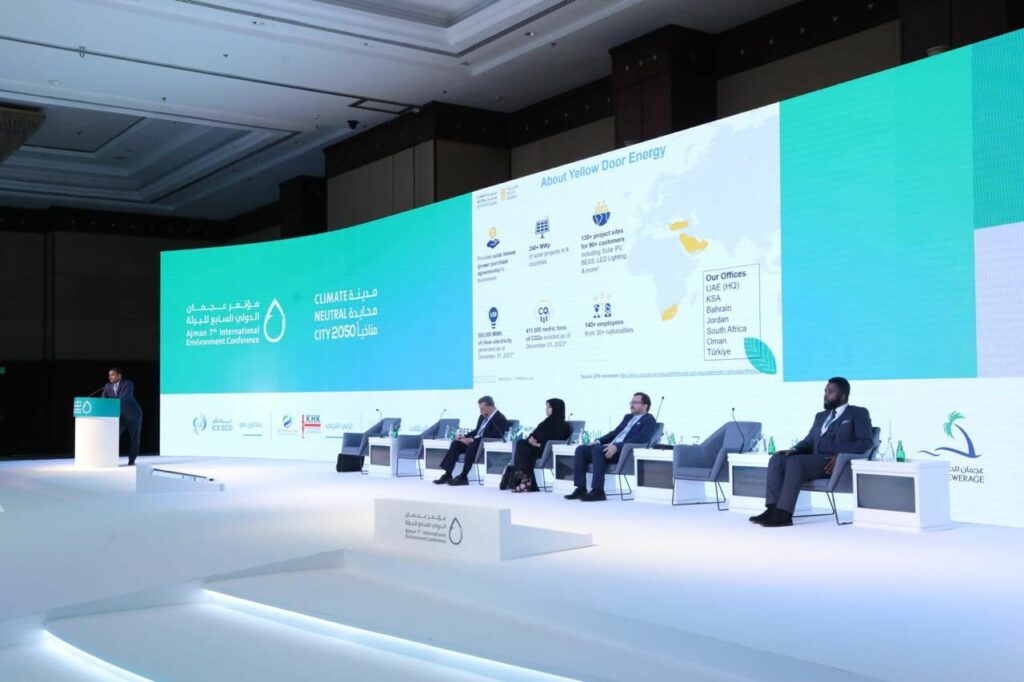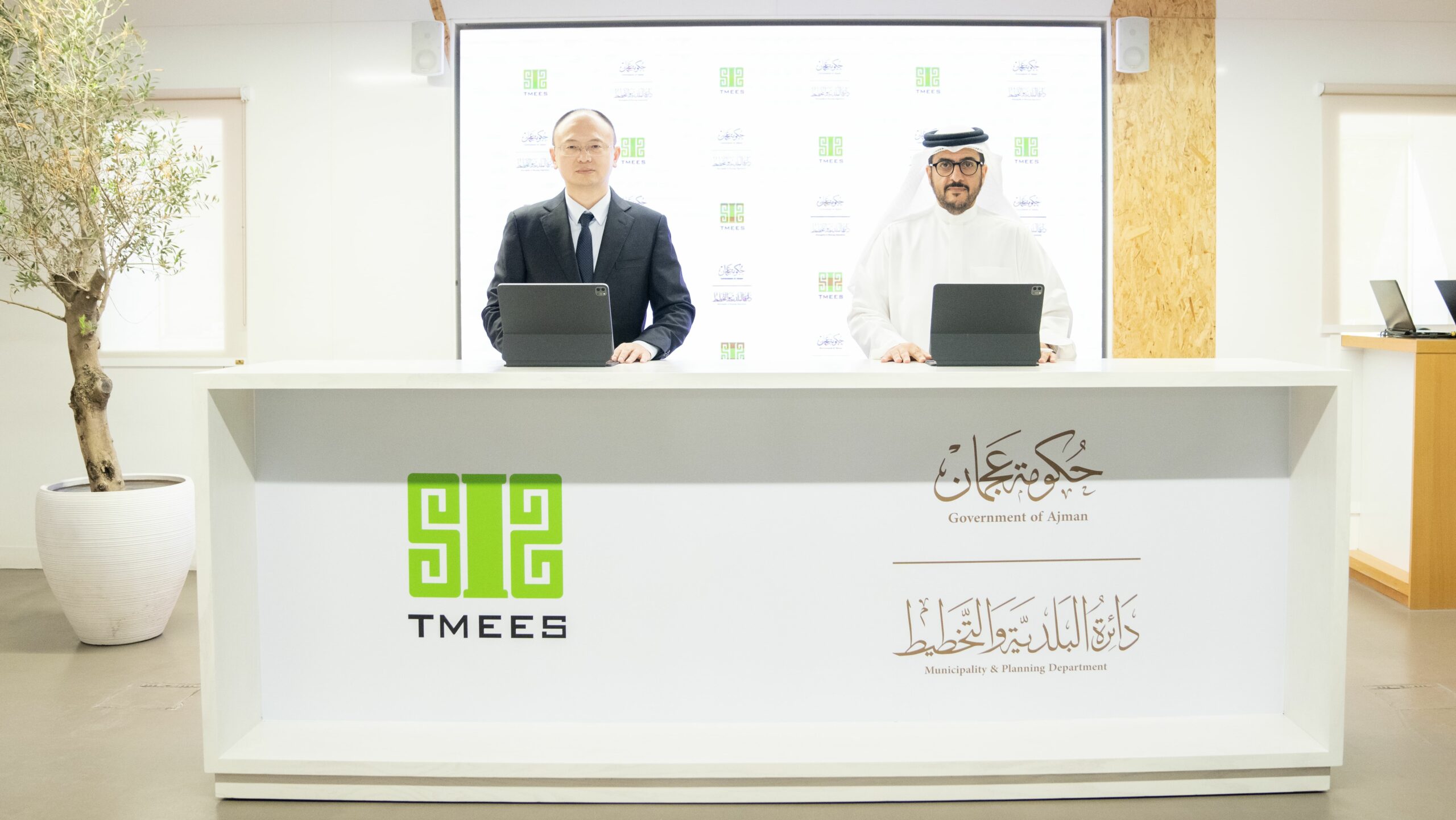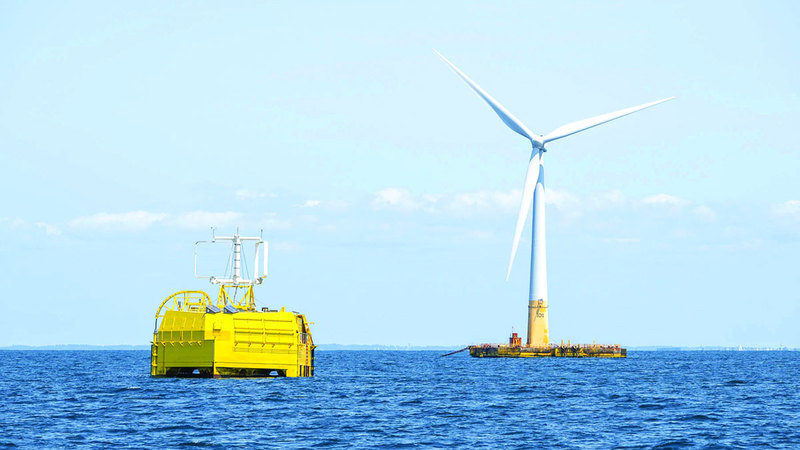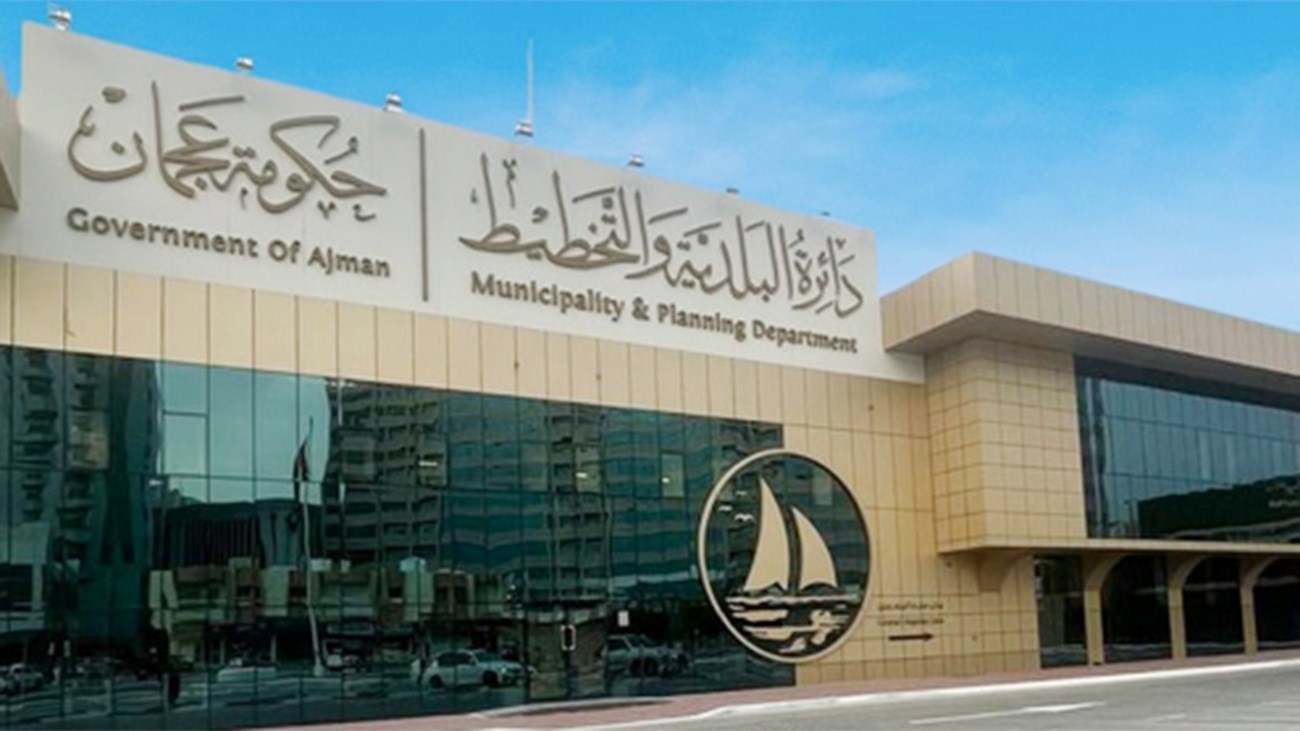Ajman, March 6 / WAM / The 7th Ajman International Environmental Conference, held under the patronage of His Highness Sheikh Hamid bin Rashid Al Nuaimi, Member of the Supreme Council and Ruler of Ajman, concluded its activities yesterday. During the conference sessions, experts and specialists emphasized the need to rely on clean energy sources and transition to zero-emission cities to address the continuous rise in global temperatures.
During a session held as part of the 7th Ajman International Environmental Conference under the theme "Climate-Neutral City," experts and specialists called for the necessity of relying on clean energy sources, particularly hydrogen, moving away from fossil fuels, and producing biofuels from waste, considering these actions essential to address climate change.
During the first session titled "The Future of Mitigating and Adapting to Climate Change," Ovais Sarimad, Deputy Executive Secretary of the United Nations Framework Convention on Climate Change, stated that the decisions made at COP28 are currently impacting us. Climate change is ongoing and will not stop; it affects all aspects of life, especially as global warming is happening everywhere on Earth.
Sarimad emphasized the need to exert efforts to stop climate change and global warming, which includes reducing carbon emissions, innovating clean energy, building flexible and sustainable infrastructure, and promoting more sustainable transportation methods.
Tahir Diab, Senior Director of Strategy and Planning at the Supreme Council of Energy in Dubai, stated that if we look at the global carbon footprint and the largest contributors, we see examples like China, the U.S., and Europe, which account for nearly 8.6 million tons. However, on the other hand, he highlighted the efforts made by the UAE over the past five years to reduce emissions, represented in solar energy projects and green mobility. He pointed out that Dubai has exceeded its target of reducing emissions by 20%, achieving 21%, and aims to increase this to 30% by 2030, ultimately reaching net-zero emissions by 2050.
Forat Al-Faraj, Head of the MRES Program in Environmental Management at Bolton University, emphasized that droughts and floods are significant factors impacting climate change. He pointed out that drought is linked to the excessive consumption of water by humans and is associated with three key aspects related to sustainability: social, environmental, and economic impacts.
He said, "We must think about the interconnected relationship between the seventeen sustainable development goals set by the United Nations, which serve the efforts toward the transition to sustainability."
Dr. Yasser Mekkawi, a professor in the Department of Chemical and Biological Engineering at the American University of Sharjah, said that biofuel can be produced from industrial and municipal waste, especially since there are many regulations to limit sending waste to landfills. Therefore, waste should be disposed of sustainably, which are the goals currently being worked on by the UAE.
Dr. Abdel Salam Darwish, a lecturer in Environmental Engineering Management at the University of Bolton in England, called for the reliance on new energy sources, especially hydrogen, and the acceleration of its use because it helps reduce the alarming and excessive heat crises.
He pointed out that in 2022, Earth's temperature rose by 1.8%, and by 2050, the increase could reach 2.75%, with projections suggesting it could rise to about 3.8% by 2100. He emphasized the necessity of searching for new energy sources, noting that investments in clean energy amounted to $50 billion in 2004, but by 2023, they had reached $1.5 trillion, with expectations to rise to $1.8 trillion by the end of this year.
In the second session titled "Energy Transition: The Future of Climate Change Mitigation and Adaptation," experts discussed the challenges, opportunities, and innovations in clean energy sources and suitable alternatives to fossil fuels.
Dr. Fahman Fath al-Rahman, an expert at the Islamic World Educational, Scientific and Cultural Organization (ISESCO), stated that we have reached a stage of climate change disasters and loss of biodiversity, which significantly impacts our lives. He pointed out that human actions have pushed some resources to their limits, emphasizing that the green transition is the key to addressing the challenges posed by climate change.
He mentioned that the transition is based on three main drivers: governments, businesses, and civil society. He emphasized the necessity of transitioning towards zero emissions and renewable energy, highlighting the importance of increasing funding for the shift towards a green economy.
For her part, Engineer Nawal Al Henai, Director of the Future Energy Department at the Ministry of Energy and Infrastructure, stated that the UAE has been moving towards energy sector transformation since 2017, and now we have reached significant levels of transition. She emphasized that the country aims to achieve net-zero emissions by 2050. She also pointed out that the UAE has become the leader among 16 countries in the Middle East and North Africa in terms of competitiveness in the energy sector, and is currently focusing on increasing reliance on hydrogen as an alternative and safe energy source.
Dr. Ahmed Galal, Professor of Power Electronics at the University of Sharjah, reviewed the process of energy transformation through the use of large turbine stations with high-voltage transformers, as well as the process of electronic power transmission. He pointed out that we have about 20 to 30 years to fully transition from carbon-based energy to renewable energy.
Dr. George Agyeikum Mensah, Professor and Head of the Department of Construction, Real Estate, and Surveying at London South Bank University, spoke about the importance of technology in managing renewable energy. He said, "Climate change has brought about a lot of drought, and addressing it has become essential in our lives," urging the need to reduce consumption as much as possible to achieve sustainable development goals.
In the third session titled "Shaping the Future of Zero-Emission Cities," Professor Manish Kumar, Professor of the Sustainability Group at the College of Engineering at the University of Petroleum and Energy Studies, emphasized the importance of achieving zero emissions and that countries must commit to carbon neutrality. He highlighted the need to develop a comprehensive plan in alignment with international regulations, ensuring there is a measurement and monitoring system over a timeframe of 5 or 10 years, while also stressing the importance of understanding the integrity of carbon neutrality.
Dr. Konstantinos Kleofoulo, Assistant Vice President for Innovation and Development at the Cyprus Institute, said that our region has been warming at a faster rate than usual, with some areas threatened by a significant temperature rise of up to 7°C over the next 100 years. He emphasized the importance of relying on technology and establishing joint policies to combat climate change.
Professor Adarsh Kumar Pandey, Associate Dean and Head of the PhD Program in Sustainability Science and Technology at Sunway University, emphasized the importance of nanotechnology in enhancing storage properties and how it can be applied in the field of sustainability. He pointed out the significance of developing sustainability technologies and relying on unlimited resources such as wind and solar energy.
For his part, Professor Peter Farrell, a professor of engineering at Bolton University in England, stated that the UAE has taken effective steps to reduce carbon emissions in the construction sector. He noted that global best practices have been implemented to achieve zero carbon emissions, emphasizing that these results need to be sustained and supported by initiatives that fully ensure carbon neutrality.
For her part, Dr. Rola Maya, an international consultant for management, strategic planning, and sustainable development policies, presented an explanatory overview on the new generation's path to achieving carbon neutrality. She pointed out that net zero means reducing carbon emissions to the lowest possible level for future generations, aiming for zero emissions by 2050. She emphasized that exceeding a temperature increase of 1.5 degrees would make life difficult and affirmed that there are major challenges, including changing work methodologies, reliance on traditional energy sources, and finding new ways to harness renewable energy.
In the fourth session titled "AI-Based Entrepreneurship for a Carbon Neutral City," Dr. Wolfram Hardt, Professor of Computer Engineering at Chemnitz University of Technology, emphasized the importance of exploring AI-based services to adopt practical applications. He pointed out that AI application services have been designed to accelerate and develop AI technologies, ensuring the efficient use of resources in a cost-effective manner. This, in turn, contributes to achieving global sustainability through advanced AI technology.
Dr. Ahmed Sabihi, Vice President of the Afro-Asian University and Professor at Al-Afak University in Sharjah, presented the efforts made by the Emirate of Ajman toward achieving environmental sustainability. He also discussed the ongoing and determined efforts by the UAE to transition to a greener future.
Dr. Miles Allen, Professor of Geological Systems Science at the University of Oxford, emphasized that the COP28 conference laid the foundation and mapped the way forward in the global effort to mitigate the impacts of climate change and adapt to it, aiming for net-zero emissions in line with the goals of the Paris Agreement.
Thomas Prokop, Head of Key Accounts for Europe, the Middle East, and Africa at Palas GmbH, discussed the importance of monitoring fine and ultrafine particles in urban areas to improve air quality in cities.
Dr. Shadi Saleh, Founding Director of the Global Health Institute, stated that achieving clear skies in the future requires reaching net-zero emissions. He emphasized the importance of harnessing high-quality data to monitor the environment and air quality.
In the fifth session titled "Accelerating Climate Action Through Technology, Innovation, and Transition to Low-Carbon Circular Economy Systems and Waste Infrastructure," Dr. Ahlam Khaldoun, from the College of Engineering at the American University of Sharjah, presented a study titled "Three-Dimensional Printed Concrete Bridge Sectors Reinforced with Hybrid Smart Reinforcement under Static Loading." She explained that 3D concrete printing (3DCP) holds significant potential to revolutionize the construction industry by enhancing productivity and reducing environmental impact through the efficient production of optimized structures.
Dr. Suhail Al Ghafli, Assistant Professor of Environmental Engineering at Zayed University, discussed examining green initiatives in university work, highlighting the important role of youth in the sustainability process.
Dr. Rami Issa Al-Zorouq, Associate Professor of Geomatics Engineering in the Civil and Environmental Engineering Department at the University of Sharjah, discussed the need to establish a spatial and temporal framework for sustainable building planning based on carbon emissions at the city level.




